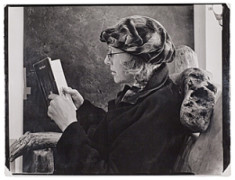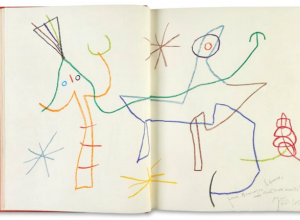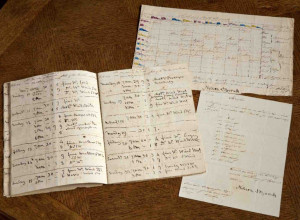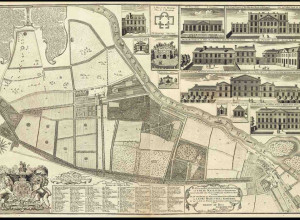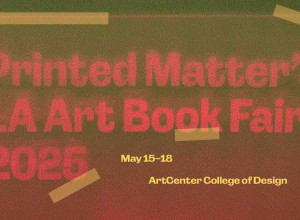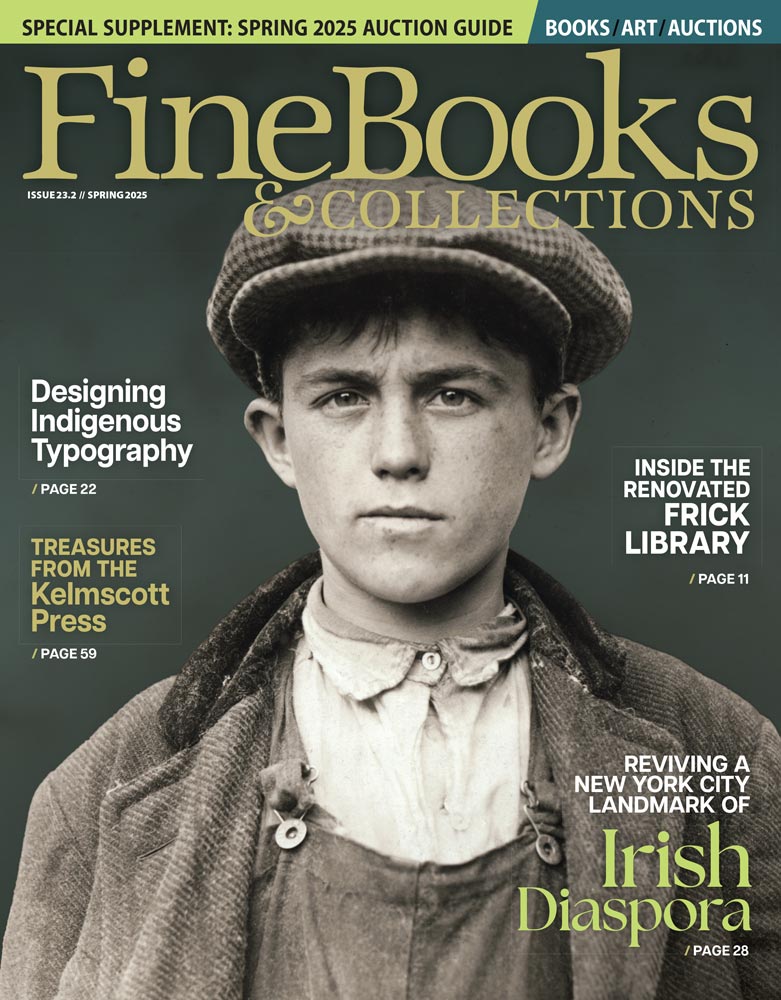Library of Congress to Mark Centennial of Hebraic Collection
A century ago, New York philanthropist Jacob H. Schiff purchased an initial collection of nearly 10,000 Hebrew books and pamphlets from bibliophile and book dealer Ephraim Deinard for the Library of Congress. This gift formed the nucleus of what is today one of the world’s greatest collections of Hebraic materials and Judaica, comprising some 200,000 items.
The Library is celebrating the centennial of its Hebraic Collection with the publication this month of "Perspectives on the Hebraic Book: The Myron M. Weinstein Memorial Lectures at the Library of Congress" and an exhibition titled "Words Like Sapphires: 100 Years of Hebraica at the Library of Congress, 1912-2012."
"Perspectives on the Hebraic Book" comprises the texts of the Myron M. Weinstein Memorial Lectures on the Hebraic Book, which were delivered annually from 2000-2009 at the Library of Congress. The compilation is edited by Peggy K. Pearlstein, head of the Hebraic Section in the Library’s African and Middle Eastern Division.
The broad scope of the lectures was designed to reflect the wide-ranging scholarly interests of Myron M. Weinstein (1927-1998), who served his 29-year career at the Library of Congress in the Hebraic Section, which he headed from 1980 until his retirement in 1984. The lecture series and its publication in book form were made possible by Weinstein’s sisters, Muriel Sterne and the late Helen Avati, with additional support from Project Judaica Trust Fund.
Each chapter analyzes unique perspectives on the Hebrew manuscript and book. Joseph R. Hacker, Hebrew University of Jerusalem, discusses the printing of Hebrew books in the 16th-century Ottoman Empire. Grace Cohen Grossman, Skirball Cultural Center in Los Angeles, examines 18th- and 19th- century Hebrew prayer broadsides. Bernard Dov Cooperman, University of Maryland, offers a view of the impact of printing on Italian Jewish piety. Jonathan D. Sarna, Brandeis University, chronicles the Jewish book in America. Zachary M. Baker, Stanford University, reflects on the Yiddish theater and its legacy. Marsha L. Rozenblitt, University of Maryland, explores 19th-century Viennese Jewry through the Isak Noa Mannheimer prayer book. Gershon Greenberg, American University, investigates the struggles of Hasidic religious thinkers to find a response to the Holocaust. Evelyn M. Cohen, an independent scholar, compares two 15th-century Joel ben Simeon manuscripts. Doris A. Hamburg, National Archives and Records Administration, describes the conservation of the 1478 Joel ben Simeon manuscript known as "The Washington Haggadah," which is housed in the Library of Congress. The rare item was rebound by the Library of Congress before its display at the Metropolitan Museum of Art last spring.
"Perspectives on the Hebraic Book: The Myron M. Weinstein Memorial Lectures at the Library of Congress," a 240-page softcover book with 30 illustrations, is available for $35 in the Library of Congress Shop, 10 First St. S.E., Washington, D.C. 20540-4985. Credit-card orders are taken at (888) 682-3557, or shop on the Internet at www.loc.gov/shop.
"Words Like Sapphires: 100 Years of Hebraica at the Library of Congress, 1912-2012," will be on view Oct. 25, 2012, through March 16, 2013, in the South Gallery of the Thomas Jefferson Building at 10 First Street S.E., Washington, D.C. The exhibition, made possible by generous support from the Abby and Emily Rapoport Trust Fund at the Library of Congress, will feature more than 60 items dating from the 7th century through the present. Items from 15 countries in nine languages include Hebrew manuscripts, incunabula (pre-1501 books), torah scrolls, Yiddish sheet music and contemporary limited edition artists’ books. More than half of the items in the exhibition have never been displayed.
The Hebraica publication and exhibition are part of the Library’s "Celebration of the Book," which includes an exhibition, June 25 through Sept. 29, on "Books That Shaped America" and a series of programs, symposia and other events that explore the important and varied ways that books influence our lives.
The Library of Congress, the nation’s oldest federal cultural institution and the largest library in the world, holds more than 151 million items in various languages, disciplines, and formats. The Library seeks to spark imagination and creativity and to further human understanding and wisdom by providing access to knowledge through its magnificent collections, programs, publications and exhibitions. Many of the Library’s rich resources can be accessed through its website at www.loc.gov.

The Library is celebrating the centennial of its Hebraic Collection with the publication this month of "Perspectives on the Hebraic Book: The Myron M. Weinstein Memorial Lectures at the Library of Congress" and an exhibition titled "Words Like Sapphires: 100 Years of Hebraica at the Library of Congress, 1912-2012."
"Perspectives on the Hebraic Book" comprises the texts of the Myron M. Weinstein Memorial Lectures on the Hebraic Book, which were delivered annually from 2000-2009 at the Library of Congress. The compilation is edited by Peggy K. Pearlstein, head of the Hebraic Section in the Library’s African and Middle Eastern Division.
The broad scope of the lectures was designed to reflect the wide-ranging scholarly interests of Myron M. Weinstein (1927-1998), who served his 29-year career at the Library of Congress in the Hebraic Section, which he headed from 1980 until his retirement in 1984. The lecture series and its publication in book form were made possible by Weinstein’s sisters, Muriel Sterne and the late Helen Avati, with additional support from Project Judaica Trust Fund.
Each chapter analyzes unique perspectives on the Hebrew manuscript and book. Joseph R. Hacker, Hebrew University of Jerusalem, discusses the printing of Hebrew books in the 16th-century Ottoman Empire. Grace Cohen Grossman, Skirball Cultural Center in Los Angeles, examines 18th- and 19th- century Hebrew prayer broadsides. Bernard Dov Cooperman, University of Maryland, offers a view of the impact of printing on Italian Jewish piety. Jonathan D. Sarna, Brandeis University, chronicles the Jewish book in America. Zachary M. Baker, Stanford University, reflects on the Yiddish theater and its legacy. Marsha L. Rozenblitt, University of Maryland, explores 19th-century Viennese Jewry through the Isak Noa Mannheimer prayer book. Gershon Greenberg, American University, investigates the struggles of Hasidic religious thinkers to find a response to the Holocaust. Evelyn M. Cohen, an independent scholar, compares two 15th-century Joel ben Simeon manuscripts. Doris A. Hamburg, National Archives and Records Administration, describes the conservation of the 1478 Joel ben Simeon manuscript known as "The Washington Haggadah," which is housed in the Library of Congress. The rare item was rebound by the Library of Congress before its display at the Metropolitan Museum of Art last spring.
"Perspectives on the Hebraic Book: The Myron M. Weinstein Memorial Lectures at the Library of Congress," a 240-page softcover book with 30 illustrations, is available for $35 in the Library of Congress Shop, 10 First St. S.E., Washington, D.C. 20540-4985. Credit-card orders are taken at (888) 682-3557, or shop on the Internet at www.loc.gov/shop.
"Words Like Sapphires: 100 Years of Hebraica at the Library of Congress, 1912-2012," will be on view Oct. 25, 2012, through March 16, 2013, in the South Gallery of the Thomas Jefferson Building at 10 First Street S.E., Washington, D.C. The exhibition, made possible by generous support from the Abby and Emily Rapoport Trust Fund at the Library of Congress, will feature more than 60 items dating from the 7th century through the present. Items from 15 countries in nine languages include Hebrew manuscripts, incunabula (pre-1501 books), torah scrolls, Yiddish sheet music and contemporary limited edition artists’ books. More than half of the items in the exhibition have never been displayed.
The Hebraica publication and exhibition are part of the Library’s "Celebration of the Book," which includes an exhibition, June 25 through Sept. 29, on "Books That Shaped America" and a series of programs, symposia and other events that explore the important and varied ways that books influence our lives.
The Library of Congress, the nation’s oldest federal cultural institution and the largest library in the world, holds more than 151 million items in various languages, disciplines, and formats. The Library seeks to spark imagination and creativity and to further human understanding and wisdom by providing access to knowledge through its magnificent collections, programs, publications and exhibitions. Many of the Library’s rich resources can be accessed through its website at www.loc.gov.






